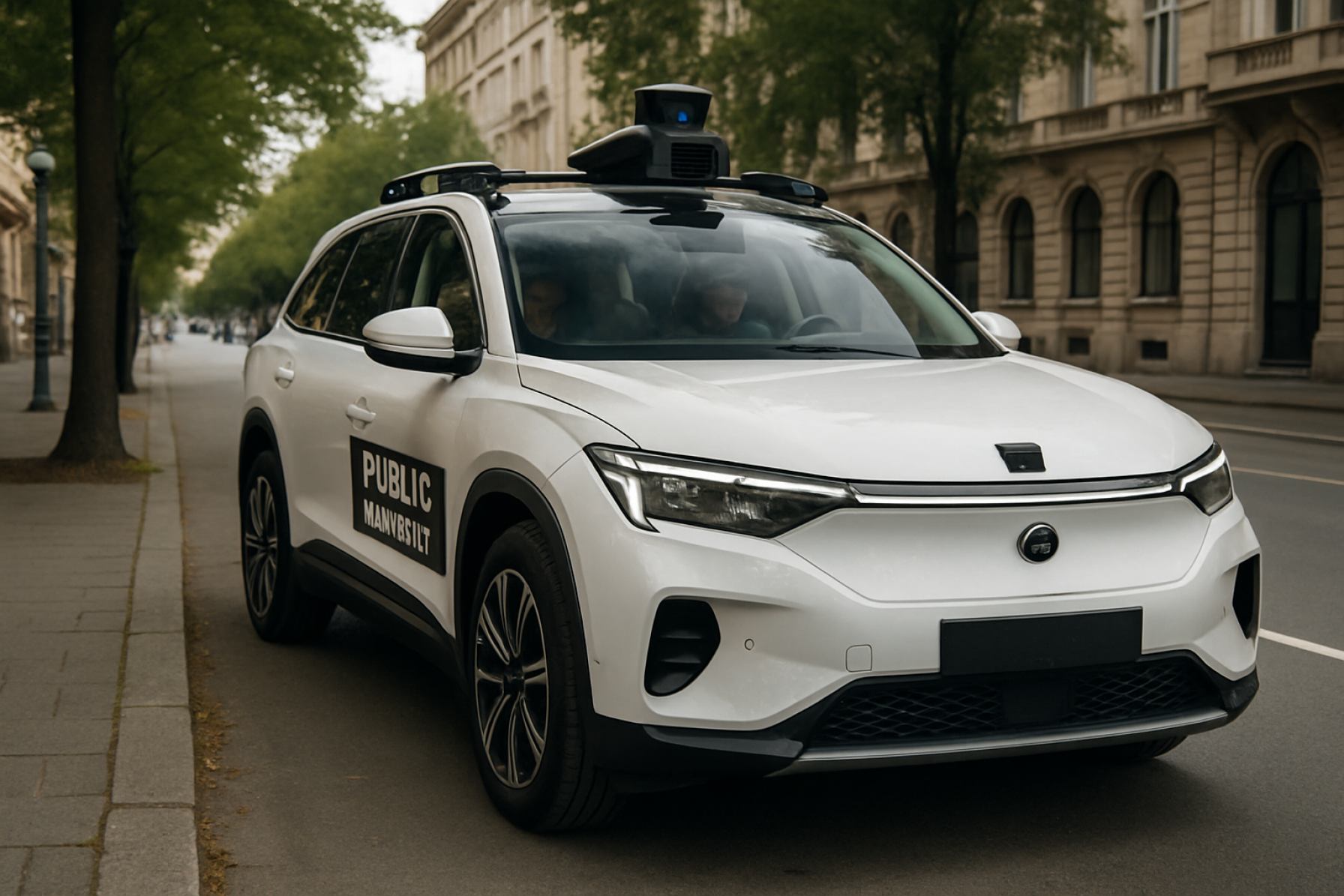Self-Driving Electric Cars Hit Oslo Streets as EU Pushes On-Demand, Autonomous Urban Transport for a Cleaner, Fairer Future
Driverless car trials begin in Oslo, promising greener transport and a potential revolution for city travel across Europe.
- €500M invested by the EU in smart mobility trials by 2026
- 5 electric self-driving vehicles now operating in Oslo
- 25% of energy-related CO2 emissions come from urban transport
- 3 European regions launching autonomous public transit pilots in 2025
Imagine summoning an electric SUV that picks you up, without a driver, and whisks you to your destination while you relax. That future arrived in early 2025, as the first wave of fully autonomous, on-demand vehicles hit Oslo’s Groruddalen district, marking a major milestone in Europe’s quest for sustainable mobility.
This headline-grabbing step is backed by the European Union, which has unleashed a €500 million bet on revolutionizing urban transport. The Norwegian deployment is just the beginning—pilot programs in Germany and Switzerland follow later this year. Together, they are laying the tracks for “demand-responsive” public transport, where routes flex to real-time passenger requests and emissions drop dramatically.
Q: What Makes Oslo’s Driverless Public Transport Different?
Unlike traditional trains or buses that follow rigid routes, Oslo’s fleet of electric SUVs, starting with the Nio ES8 retrofitted for autonomy, takes passengers wherever needed within carefully mapped urban zones. Everything runs via a slick app, unlocking travel that’s smarter, cleaner, and potentially cheaper than owning a car.
These vehicles use a powerful combination of 3D mapping, cameras, radar, and next-level connected infrastructure, ensuring safety and efficiency. Although each car currently has a human safety operator on board, the project’s endgame is fully driverless rides—thanks to smarter sensors, AI-powered oversight, and robust remote monitoring.
Q: How Will On-Demand Autonomous Vehicles Transform City Life?
Europe’s transport leaders and tech giants— including Siemens, Capgemini, and the International Association of Public Transport—are betting big on a future where:
- Air pollution and noise drop as electric fleets replace combustion engines
- Mobility becomes more accessible for the elderly and those with limited transport options
- Private car ownership declines, freeing city streets and budgets
- Multiple forms of shared mobility integrate seamlessly through a digital platform
The ultimate goal: get people out of private cars and into sustainable, on-demand public transport. If the Oslo trial reaches its planned scale—potentially deploying up to 500 vehicles—the cost per passenger-kilometer could undercut private cars, making green travel a no-brainer for all.
How Can Other Cities Join the Autonomous Revolution?
Turning these flashy pilots into everyday reality requires more than cool tech. Cities and providers must develop shared standards to let different autonomous fleets and public transport systems talk to each other, ensuring coordination and safety. There’s also the challenge of regulatory approval, robust AI for handling unpredictable situations, and creating new pricing models that reward riders.
The ULTIMO initiative, running until September 2026, is racing to solve these puzzles. Researchers and authorities across six EU countries, Norway, and Switzerland are working hand-in-hand, aiming to deliver a blueprint for cities everywhere to leap into the automated era.
Is Europe Leading the Driverless Mobility Race?
With heavy investment and joined-up thinking, the EU is surging ahead in the race for automated, cooperative, cleaner mobility. Successful models could soon spread worldwide—redefining how cities beat congestion, cut carbon emissions, and connect communities.
Stay tuned for launches in Germany and Switzerland later this year—many believe these are the stepping stones to a world where urban travel is smarter, safer, and open to everyone.
Ready to experience the future? Here’s how you can prepare:
- Download local transport apps to stay up-to-date on autonomous pilot rollouts
- Try a shared mobility service in your city (e-scooters, bikes, car clubs)
- Support policies that champion sustainable, inclusive transport
- Learn more from the European Commission and United Nations on green mobility strategies
The future of urban travel is arriving—get ready to ride!
